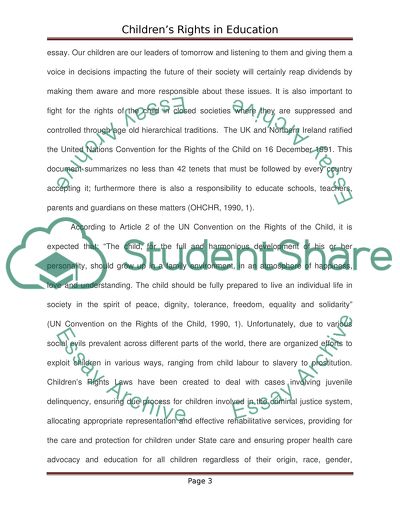Cite this document
(“Childrens Rights in Education Essay Example | Topics and Well Written Essays - 2500 words”, n.d.)
Retrieved from https://studentshare.org/education/1393813-childrens-rights-in-education
Retrieved from https://studentshare.org/education/1393813-childrens-rights-in-education
(Childrens Rights in Education Essay Example | Topics and Well Written Essays - 2500 Words)
https://studentshare.org/education/1393813-childrens-rights-in-education.
https://studentshare.org/education/1393813-childrens-rights-in-education.
“Childrens Rights in Education Essay Example | Topics and Well Written Essays - 2500 Words”, n.d. https://studentshare.org/education/1393813-childrens-rights-in-education.


